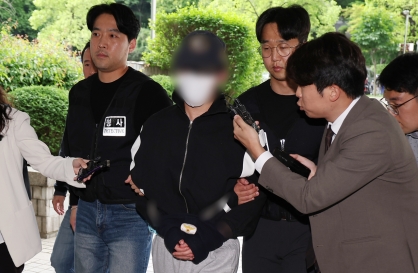S. Korean student drawing on personal experience to help Asian athletes in U.S.
By 정주원Published : Feb. 7, 2014 - 11:39
When Lee Han-gil, a student at Temple University's Beasley School of Law, moved from South Korea to the United States as a teenager, he was faced with, in his words, "language and cultural challenges."
Lee, now 27 and in his last semester at law school, said he "found refuge" on his high school baseball and football teams. He is now trying to draw on his personal experience and help Asian athletes adjust to American culture.
Lee is the CEO of Global Sporting Integration, a sports consulting firm he founded last December with two attorney partners, N. Jeremi Duru and Kenneth A. Jacobsen. Based in Philadelphia, GSI, according to Lee, "works to ease the transition process for professional athletes from abroad while playing their sports in a new country."
"GSI was born out of my personal experience adjusting to the American culture," Lee said in an e-mail interview with Yonhap News Agency. "Sports broke down barriers I once thought insurmountable and exposed me to what this new country had to offer. Sports was my way of adapting, but many professional athletes who come to the U.S. don't get the support they need to effectively survive and thrive.
"I also noticed the reverse. I've seen how foreigners can struggle adapting to Asian cultures," Lee added. "My business partners and I want to use our shared passion for baseball to help bring countries closer together."
Lee said he has been taken aback by a lack of attention paid to foreign players' transitions, especially in baseball.
"There has been some improvement with respect to Latin players' transitions, although those transition services are often not comprehensive," he said. "With respect to Asian players, however, many are simply provided a translator and that's it. This is an even bigger concern on the minor league levels where there is less money and thus less support."
Lee said the most important part of adjustment and transition is learning the language. The ability to speak English will obviously help athletes on the field, but it will also allow them to form friendships that can make their life easier off the field, Lee said.
"Players need to go beyond standardized language lessons and learn how English is colloquially spoken in the U.S.," he said. "One of the major focuses of our company is to ensure that athletes have an understanding of things like baseball lingo, colloquial expressions, and cultural idiosyncrasies that will allow them to more naturally interact with their fellow players as well as management and fans."
Lee declined to offer the names of specific players GSI has contacted, but said he and his partners have "met many players across both the major and minor leagues" who were interested in their services. The group included players coming to the U.S. and also Americans moving to Asian leagues, he added.
Lee said it also helps to have Jacobsen, a co-owner of the Wilmington Blue Rocks, a Single A affiliate of the Kansas City Royals, as his partner. Lee said Jacobsen brings "a wealth of experiences as well as contacts in the industry."
"We've personally spoken to players on an individual basis, several of whom were Korean, but we're looking to work on a larger scale," he said. "We were also down at the MLB's Winter Meetings this past December, and met many front office executives, scouts, and agents to get our name out there."
Lee said he hopes to expand GSI's scope to help athletes in different sports, but for the time being, the focus will remain on baseball.
"Our entire team at GSI is deeply connected to the sport, and we've seen some of the most acute needs there," he said. "Our first priority is to make an impact in baseball."
As for himself, Lee said he also hopes to broaden his horizons in sports.
"I see myself dedicating my career to sports," he said. "I've been fascinated by effective cross-cultural communication, and how it can bring countries closer together. My goal is to create a system that every Asian baseball player coming to the United States (or vice versa) can benefit from, whether they are professionals, or amateur prospects." (Yonhap News)










![[K-pop’s dilemma] Time, profit pressures work against originality](http://res.heraldm.com/phpwas/restmb_idxmake.php?idx=644&simg=/content/image/2024/05/08/20240508050705_0.jpg&u=20240508171126)







